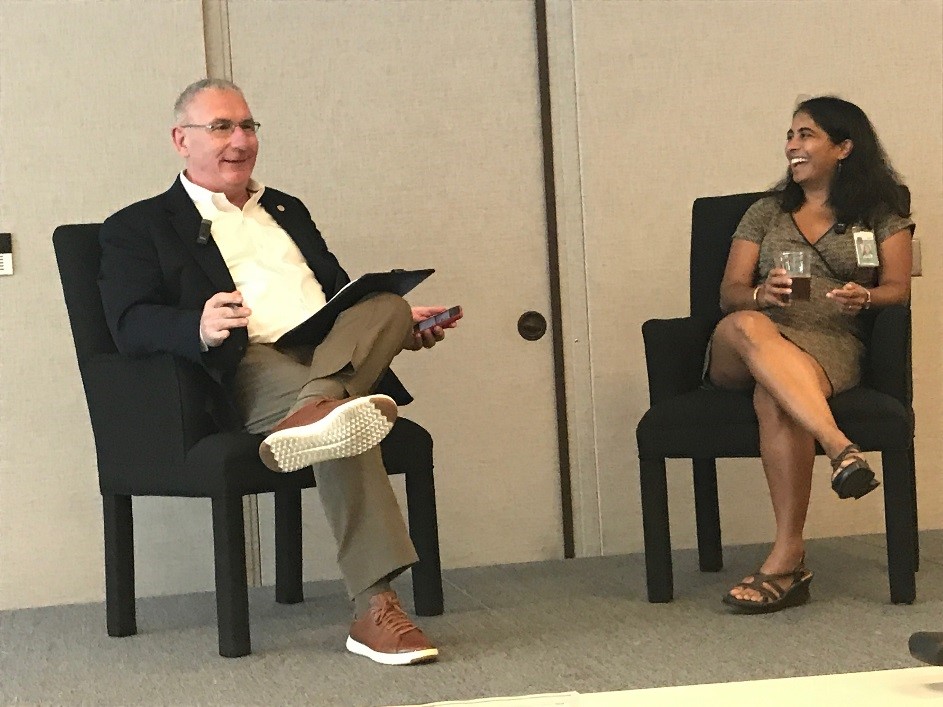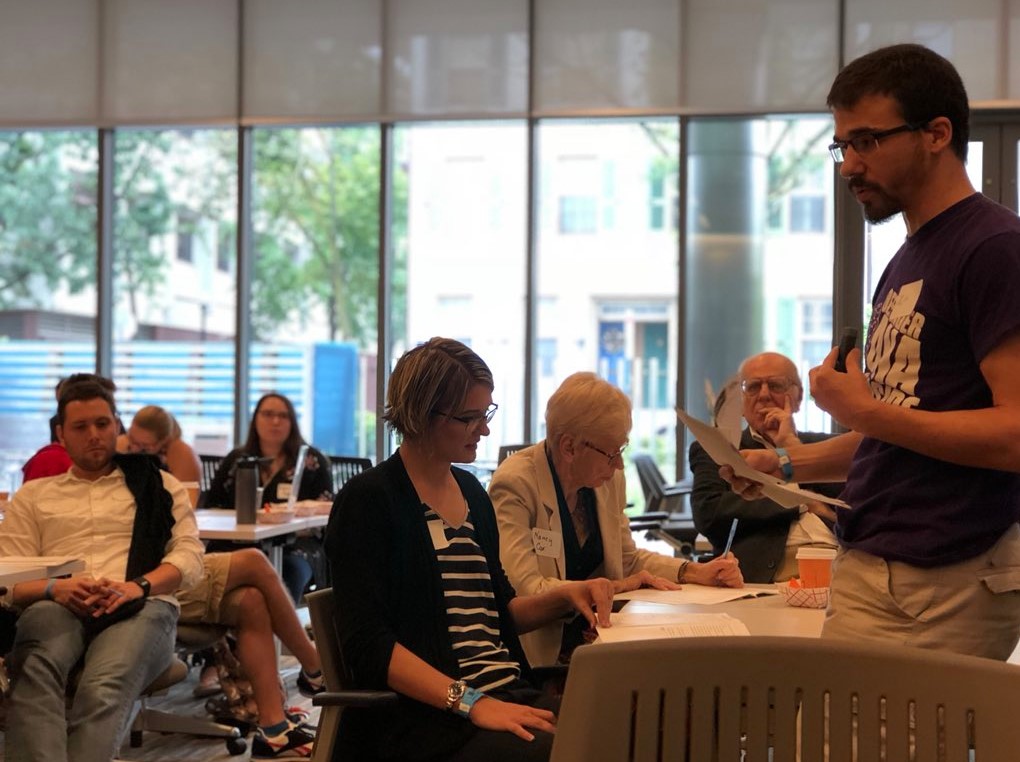What’s the future of human genome editing? The Philadelphia community tackled this question at The Franklin Institute’s Editing Our Evolution forum on September 15, 2018. As chief bioscientist at the Institute, I’ve been anticipating this event for a long time. Over the last few years we’ve been featuring programming to help our audience understand the CRISPR revolution—from Building with Biology activities on the museum floor to events with leading gene editing researchers Dr. Jennifer Doudna and Dr. Philippe Horvath. However, as an opportunity to engage our audience in a true dialogue about the impact of this emerging science, Editing Our Evolution took a step beyond these past events.
We first connected with the Christiana Care Health System’s Gene Editing Institute in Delaware through their interest in public outreach. Director Dr. Eric Kmiec turned out to be the perfect partner scientist for our forum. Unlike a major research hospital, CCHS is a community health center serving diverse communities that can have limited access to medical services. In this context, the Gene Editing Institute takes a patient-centered approach to their research. They consider not just the advancement of science, but also the impact on cost, access, and equity of care. For example, because chemotherapy remains one of the most effective and widespread treatments for cancer, Eric’s team has enhanced its efficacy with a novel use of CRISPR that reduces resistance to standard chemotherapy drugs.
Eric and I first had the opportunity to talk about the societal impacts of CRISPR in July when I guest-hosted an episode of our local public radio station’s weekly health and science show/podcast, The Pulse. As I worked with the production team to plan an episode about how the environment shapes our DNA, I knew that the idea of editing our evolution would be a perfect fit. You can listen to the whole episode called “DNA, Adapted”; my segment with Eric begins at 42:47 (and four NISE Net partner cities get a shout out for their forums!).
We expanded on this conversation to kick off the forum, and the informal style of our dialogue—rather than a formal talk—helped set a comfortable tone for the event. Eric and I talked about the basics of CRISPR, his research, the distinction between therapy and enhancement, and his questions about germline editing, before sitting down at different tables to participate in the group discussions.
As I listened, I was inspired by the diversity of expertise and lived experiences that shaped our conversation. Among the participants at my table were a clinical trials coordinator working in pediatric cancer research, an architect whose husband has multiple sclerosis, a scientist who grew up in Costa Rica with universal healthcare, and a data entry specialist who had undergone an organ transplant among other therapies for a variety of serious physical disabilities.
~ Jayatri Das, Chief Bioscientist at The Franklin Institute
Given the focus of the forum, we also wanted to make sure that it was feasible for parents and caregivers of children to participate. We held our event on a Saturday afternoon and offered a parallel children’s workshop led by our museum educators. Using Building with Biology activities, the workshop complemented the forum by exploring the science of synthetic biology and gene editing. Our educators reported that Bio Bistro and Tech Tokens were especially successful in sparking conversations, and it was fun to have the kids join us at the end to share some of their thoughts.
We heard a lot of positive feedback after the event. Scientists expressed interest in participating in future forums, and we even saw conversations among guests who wanted to follow up with each other. My favorite response came in an email I received from one participant:
"I enjoyed the forum! I learned a lot about the advantages of gene therapy. I also learned how people perceive gene therapy and genetic modification. I found the discussions fascinating because I find people fascinating… I greatly appreciated [that] researchers can read my thoughts and now they will be immortalized… It was a pleasure meeting you, participating in the forum and having real discussions about the future. In fact every time I've come to the Franklin Institute I experience nothing but joy.”
~ Forum participant
Joy! I wouldn’t have predicted joy to be a prevailing emotion after this event, but I felt it too. In a world where we don’t often have the opportunity to sit down and have thoughtful conversations with strangers, Editing Our Evolution created a space for human connection. Oh, and we learned some science along the way too.
To learn more about The Franklin Institute's human genome editing forum, please contact Jayatri Das, Chief Bioscientist, at [email protected].
Building with Biology project's newest forum, Editing Our Evolution: Rewriting the Human Genome is available for digital download at http://www.nisenet.org/catalog/editing-our-evolution-rewriting-human-genome-forum.


